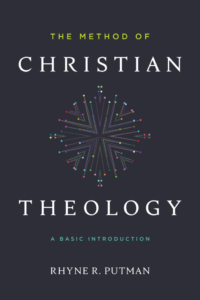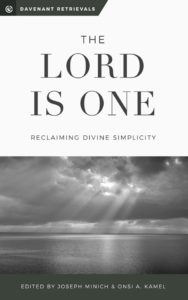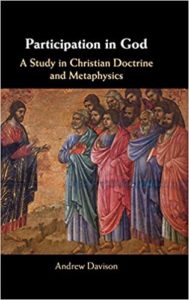
Author’s Corner: Theology and Doctrine
Each week on Credo we welcome you to join us in the Author’s Corner where we will meet a set of authors whose recent books deserve your attention and might even help you grow in your knowledge of theology, history, philosophy, and the scriptures. We hope the Author’s Corner can keep you up-to-date on the most important books published today and where you can find them.
On today’s Author’s Corner we present you with a selection highlighting recent works on theological method and doctrine.
T he Method of Christian Theology: A Basic Introduction (B&H, 2021) by Rhyne R. Putman
he Method of Christian Theology: A Basic Introduction (B&H, 2021) by Rhyne R. Putman
When handling the things of God, our method matters.
Everyone who thinks about God has a method for approaching the subject, whether they recognize it or not. A theological method addresses foundational questions such as: What is theology? How should we approach Scripture? What is the role of tradition, philosophy, and experience? How do we use theology in ministering to others? These questions are vital for anyone studying God and his Word—how one defines theology, sees its task, and uses its sources will shape one’s doctrine, for better or worse.
In The Method of Christian Theology, Rhyne Putman guides readers through the essential “first words” of systematic theology. Written for entry-level theology students, this book provides clear guidance for using theological sources, reasoning through difficult questions, and applying theological reflection in paper writing and preaching. By studying the foundations of theology, readers will be better equipped to serve God’s people in whatever ministry they are called to.
T he Lord is One: Reclaiming Divine Simplicity (Davenant Press, 2019) edited by Joseph Minich and Onsi A. Kamel
he Lord is One: Reclaiming Divine Simplicity (Davenant Press, 2019) edited by Joseph Minich and Onsi A. Kamel
After an age of original integrity, the doctrine of divine simplicity fell from grace. Once a cornerstone of orthodox Christianity’s doctrine of God, many modern theologians expelled it from the garden, especially since it often employed now-passé Platonic and Aristotelian metaphysics. But was the doctrine of divine simplicity’s fall deserved? Is it unreasonable to hold that God is metaphysically without parts? Is the Lord really one?
Rather than dismiss the challenges leveled against divine simplicity by modernity, The Lord is One engages them. The contributors advance in the belief that modernity cannot and should not be escaped, but they do not hesitate to critique currents within it. Thus, this volume presents exegetical, historical, and theological treatments of divine simplicity. It argues the doctrine of divine simplicity is cogent and indispensable while also making space for historically marginalized or idiosyncratic articulations of it. After all, once expelled from the garden, nothing returns exactly as it was.
P articipation in God: A Study in Christian Doctrine and Metaphysics (Cambridge, 2019) by Andrew Davison
articipation in God: A Study in Christian Doctrine and Metaphysics (Cambridge, 2019) by Andrew Davison
Few ideas have excited greater interest among theologians in recent decades than the idea of ‘participation’. In thinking about creation, it is the notion that everything comes from, and depends upon, God, inviting the language of sharing, or of an exemplar and its images; in thinking about redemption, it points to the restoration of that image, and is expressed in the language of communion with God and with the redeemed community. In this volume, Andrew Davison considers these themes in unprecedented breadth, investigating the fundamental character of participation as it can be applied to a wide range of theological topics. Exploring what it means to know, to love, to do good, and to live together well, he shows how these ideas animate a particular understanding of human life and how we relate to the world around us. His book offers the most comprehensive survey of participation to date, contributing to detailed discussions of these themes among academic theologians.

